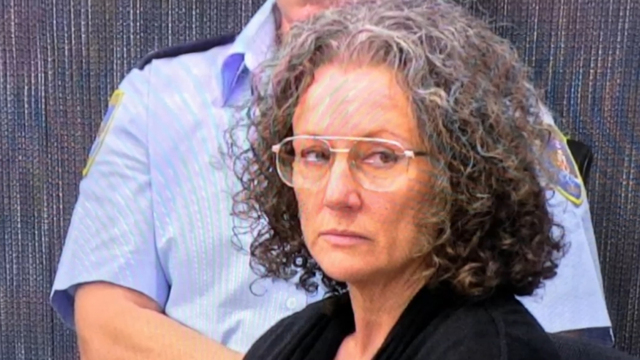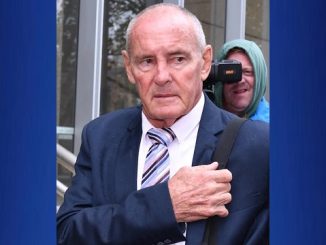
A woman once branded “Australia’s worst female serial killer” has been pardoned after new evidence suggested she did not kill her four infant children.
Kathleen Folbigg spent 20 years in prison after a jury found she killed sons Caleb and Patrick, and daughters Sarah and Laura over a decade.
But a recent inquiry heard scientists believe they may have died naturally.
The 55-year-old’s case has been described as one of Australia’s greatest miscarriages of justice.
Ms Folbigg, who has always maintained her innocence, was jailed for 25 years in 2003 for the murders of three of the children, and the manslaughter of her first son, Caleb.
Each child died suddenly between 1989 and 1999, aged between 19 days and 19 months, with prosecutors at her trial alleging she had smothered them.
Previous appeals and a separate 2019 inquiry into the case found no grounds for reasonable doubt, and gave greater weight to circumstantial evidence in Ms Folbigg’s original trial.
But at the fresh inquiry, headed by retired judge Tom Bathurst, prosecutors accepted that research on gene mutations had changed their understanding of the children’s deaths.
New South Wales (NSW) Attorney General Michael Daley on Monday announced that Mr Bathurst had come to the “firm view” there was reasonable doubt that Ms Folbigg was guilty of each offence.
As a result, the NSW governor had signed a full pardon, and ordered Ms Folbigg’s immediate release from prison.
“It has been a 20-year-long ordeal for her… I wish her peace,” Mr Daley said, adding his thoughts were also with Craig Folbigg, the children’s father.
At the 2022 inquiry Mr Folbigg’s lawyers pointed to the “fundamental implausibility” of four children from one family dying of natural causes under the age of 2.
His disclosure of his ex-wife’s diaries – which expressed her struggles with motherhood – to investigators in 2003 formed a key part of the circumstantial evidence against her.
But at the recent inquiry, experts suggested the diaries were a coping mechanism written by a grieving mother with limited support.
The unconditional pardon does not quash Ms Folbigg’s convictions, Mr Daley said. That would be a decision for the Court of Criminal Appeal, if Mr Bathurst chooses to refer the case to it – a process which could take up to a year.
If her convictions are overturned, she could then potentially sue the NSW government for millions of dollars in compensation.
Alternatively, she could receive an ex-gratia payment similar to that of Lindy Chamberlain, who was awarded $1.3m (£690,000, $US858,000) in 1992 for her wrongful conviction over the death of her daughter Azaria.
Ms Folbigg was met at prison gate by her friend Tracy Chapman, who was involved in the campaign for her release.
“I know the past 20 years have been horrific for Kathleen, not least for the pain and suffering she has had to endure following the loss of her four children,” Ms Chapman told the Australian Broadcasting Corporation.
The years-long campaign to free Ms Folbigg began when a team of immunologists found her daughters, Sarah and Laura, shared a genetic mutation that can cause sudden cardiac death.
Evidence was also uncovered that her sons, Caleb and Patrick, possessed a different genetic mutation, linked to sudden-onset epilepsy in mice.
Prof Carola Vinuesa, who led the research team from the Australian National University, said an unusual genetic sequence was immediately obvious in Ms Folbigg’s DNA before the children’s samples were even tested.
“We did the first test and found a [gene] variant that looked very suspicious… even then in November 2018, we thought this [a] very high likelihood, if found in the children, to be the culprit,” she told the BBC.
Prof Vinuesa said there were only 134 known cases worldwide of the potentially deadly heart condition linked to the genetic mutation.
She described the decision to pardon Ms Folbigg as a “beautiful moment” that could offer hope to other women in tragic situations.
“We’ve been approached about women who have lost children, or who have been accused of inflicting harm, and the cases look as if they’re also children with severe genetic conditions,” she told the BBC.
Source: bbc.co.uk






Be the first to comment